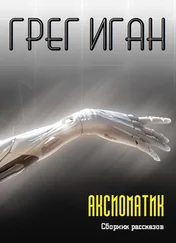When Prabir pressed Keith for explanations of all the phrases he didn’t understand in this account, his heart sank. ‘And this is what Amita has done for the last twelve years?’
Keith laughed. ‘No, no, of course not! That was just her Masters; she’s moved on. For her doctorate she tackled an entirely different subject: developing an interactive graphic novel of Conrad’s Nostromo , as an exercise in post-colonial transliteracy. Nostromo becomes a comic-book superhero in Lycra, who loses his powers whenever he’s exposed to radiation from silver ingots. This ironises and recontextualises Conrad’s own highly ambiguous relationship with the economic benefits of imperialism, and cleverly undermines the whole myth of the artist as quasi-divine standard-bearer for transcendent morality.’
Prabir was beginning to wonder if Keith was playing an elaborate joke on him. ‘And what is she studying now?’
Keith smiled proudly. ‘For the past four years, she’s been working on a radical new paradigm in computing. She’s still had no luck getting funding to build a prototype, but that can only be a matter of time.’
‘Amita has designed a computer?’ Now Prabir knew he was being taken for a ride. ‘When did she find time to study engineering?’
‘Oh, she’ll hire an engineer when she gets funding.’ Keith waved a hand dismissively. ‘Her contribution is purely intellectual. Mathematical .’
‘Mathematical?’
Keith regarded him dubiously. ‘You might be a bit young to understand this. Do you know how computers work, Prabir?’
‘More or less.’
‘Zeroes and ones. You understand the binary system?’ Keith grabbed a notepad that was lying on the coffee table in front of them, and drew the two digits.
Prabir tried not to sound offended. ‘Yes, I understand.’
‘Have you ever wondered why computers are so hostile to women?’
‘Hostile?’ Prabir had some trouble deciding what Keith was most likely to mean by this claim. Paranoid delusions of artificial intelligence weren’t necessarily out of the question. ‘You mean … why do some men harass women on the net?’
Keith said, ‘Well, yes, but it goes far deeper than that. Amita’s work not only reveals the fundamental reason for the problem, it offers a stunningly simple solution.’ He jabbed at the notepad with his finger. ‘Zero and one. Absence and presence. And just look how they’re drawn! “Zero” is female: the womb, the vagina. “One” is male: unmistakably phallic. The woman is absent, marginalised, excluded. The man is present, dominant, imperious. This blatantly sexist coding underpins all modern digital technology! And then we ask ourselves why women find it an unwelcoming space!
‘So Amita proposed a new paradigm, for both hardware and software. The old, male-dominated hardware is replaced by the transgressive computer, or transputer . The old, male-dominated software is translated into a brand-new language, called Ada — after Ada Lovelace, the unsung mother of computing.’
Prabir ventured, ‘I think someone’s already named a language after her.’
But Keith refused to be distracted. ‘What is this new paradigm? It’s simple! Every one becomes a zero, every zero becomes a one: a universal digital gender reassignment! And the beauty of it is, on the surface everything looks like business as usual. If all hardware and all software undergoes the same inversion, programs continue to produce the same results — there is no change whatsoever to the naked eye. But deep inside every microchip, the old phallocentric coding is being subverted, billions of times per second! The old power structures are turned on their head every time we switch on our computers!’
Prabir had had enough; Keith must think he was some kind of uneducated hick who’d swallow anything. If he’d been feeding him these increasingly tall tales to see how much he could get away with, it was time to call his bluff.
‘Computers don’t have little numerals inside them,’ Prabir said flatly. ‘Zero is usually coded in memories by the absence of electrical charge in a capacitor, and one by the presence of charge, but sometimes even that’s reversed. And even when it’s not reversed … absence is coded as absence, presence is coded as presence. There are no diagrams of vaginas and penises, or anything else to do with people’s sex.’
Keith said uncertainly, ‘Well, maybe not literally. But you can hardly deny that the symbols themselves permeate technological culture. No one lives in the so-called “physical” world of electrons and capacitors, Prabir! The true space we inhabit is cultural!’
Prabir stood and picked up the notepad, exasperated. ‘These are Hindu-Arabic numerals! People have used them for centuries; they have nothing to do with computers. If you really imagine that they’re drawings of private parts, it’s not technology that should offend you — it’s mathematics!’
Keith shouted, ‘Yes, yes! You’re absolutely right! Don’t move; I’ll be back in five seconds!’ He ran from the room.
Madhusree gave Prabir a questioning look. Prabir said, ‘Don’t worry, we’re just playing a game.’ And I’m winning .
Keith returned, carrying a book, flicking through it, looking for something. ‘Aha!’ He held the cover up for Prabir. ‘From the Proceedings of the Fifteenth Annual Conference of Cyberfeminist Discourse . This was the paper Amita gave last year, which made The New York Times describe her as “Canada’s most exciting living intellectual”.’
He read, ‘ “The transputer will only be the first stage in a revolution that will transform the entire gendered megatext of technology and science. The next hegemony to fall, long overdue for its own hyperqueer inversion, will be mathematics itself. Once again we will need to rebuild the discipline from the ground up, rejecting the flawed and biased axioms of the old, male dispensers of truth, transforming their rigid, hierarchical approach into one that is organic, nurturing, and playful. Proof is dead. Logic is obsolete. The next generation must be taught from childhood to ridicule Russell’s Principia , to tweak the beard of Carl Friedrich Gauss — to pull down Pythagoras’s trousers!” ’
Prabir stretched his hand out and took the book. The passage was exactly as Keith had read it. And Amita’s name was at the top of the article.
He sat down, light-headed, still disbelieving. In the camp, when he’d recalled the things his father had said about Amita, he’d feared that she might be religious, but it was even worse than that. She was opposed to everything his parents had stood for: the equality of men and women, the separation of scholarship from self-interest, the very idea of an honest search for truth.
And he’d delivered Madhusree into her hands.
Prabir had been dreading the start of school, but by the end of the first week all his worst fears had proved groundless. The teachers spoke like sane human beings; there was no Keith-and-Amita babble in sixth grade. And he’d been allowed to sit in on Madhusree’s first morning in childcare, which seemed equally harmless. Madhusree had played with other children in the camp, so it had come as no great shock to her to meet the same kind of strange beings again, and though she’d cried when Prabir left her on the second day, when he came home she’d been full of enthusiastic reports of her activities.
Prabir had expected to be beaten up at school, but the other students kept their distance. One boy had started taunting him about his face, but then another boy had whispered something to the first that had made him fall silent. Prabir fervently hoped that they only imagined they knew the story behind the scars; he’d rather have been laughed at than have these strangers discussing anything that had happened on the island.
Читать дальше










![Грег Иган - Рассказы [компиляция]](/books/419837/greg-igan-rasskazy-kompilyaciya-thumb.webp)
